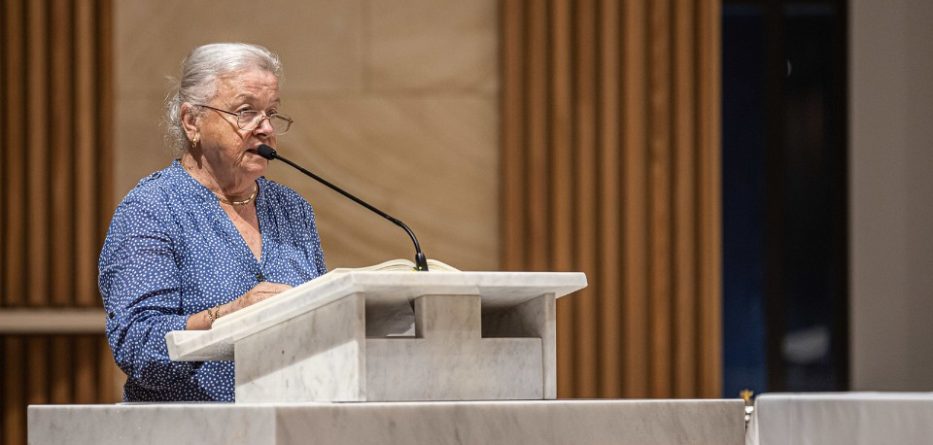Volunteers are the backbone of any parish. Mass itself wouldn’t happen without people prepared to read, take the collection or serve at the altar.
Related story: Diocese of Parramatta launches first Safe Parishes Week
Related story: New safe parishes online training an ethical responsibility.
Outside of Mass, there are dozens of volunteer roles that make a parish function as a community, drawing people closer to Jesus.
Even the ‘smallest’ volunteer contribution needs to be acknowledged and seen for what it is, says Melisa Kheirallah, Human Resources Manager in the Diocese of Parramatta. “Volunteers in parishes are an essential part of ministry. While they are living the example of the gospel, they also need to be considered as ‘workers’ in some respects,” she says. “They have both rights and responsibilities.”
As part of its Safe Parishes initiatives, the Diocese of Parramatta is currently preparing new handbooks for volunteers and those who manage them.
“Even if you don’t consider yourself a ‘manager’ in your parish,” says Melisa, “if you have some responsibility for organizing volunteers, you need to recognise yourself as a leader who, at times, people will look up to.” She explains that some people will look to anyone taking a role in the parish as a leader, “even if that person doesn’t consider themselves as such,” she says.
She gives an example of an emergency on parish grounds. “People will look to the people who have organized the group or may have even just read at Mass as the person who will take charge.”
Knowing some basic policies and procedures makes it easier for everyone, says Melisa. “Once volunteers know the simple things like who to contact if they can’t be there when rostered on, they will be able to do their job much more effectively.”
While parishes manage volunteers in many different ways – some are formal with job descriptions and training, some are less formal – there are a number of policies and procedures all volunteers should be aware of says Melisa.
The Diocese continues to model best practice, and, along with legal requirements, put this into policies. The soon-to-be-released handbooks, one for volunteers, and one for volunteer managers, have been designed to highlight some essential information from key Diocesan policies.
It is expected the volunteer handbooks will be released in the next few months.
For now, Melisa is keen that volunteers understand they are very much part of the plan for building safe parishes and explains that is both about protecting those at risk, as well as the volunteers themselves.
“Being informed about your safety and others is very much being part of the solution for building the community of our Church so it can spread the Good News,” she says. “Knowing about safety is showing your love and respect for the human dignity of others.”
Watch out for more information coming soon to parishes about the new handbooks for volunteers and those who manage volunteers in the Diocese of Parramatta.
If you see something in your parish you think might be unsafe or have concerns about, contact the Office of Safeguarding in the Diocese of Parramatta on (02) 8838 3419 or email: safeguarding@parracatholic.org.
If the matter is urgent call the police on 000.
Safe Parishes Week is being held in the Diocese of Parramatta 6 to 13 June 2021 to highlight the initiatives the Diocese has put in place around safeguarding. To find out more go to catholicoutlook.org/safeparishesweek.








